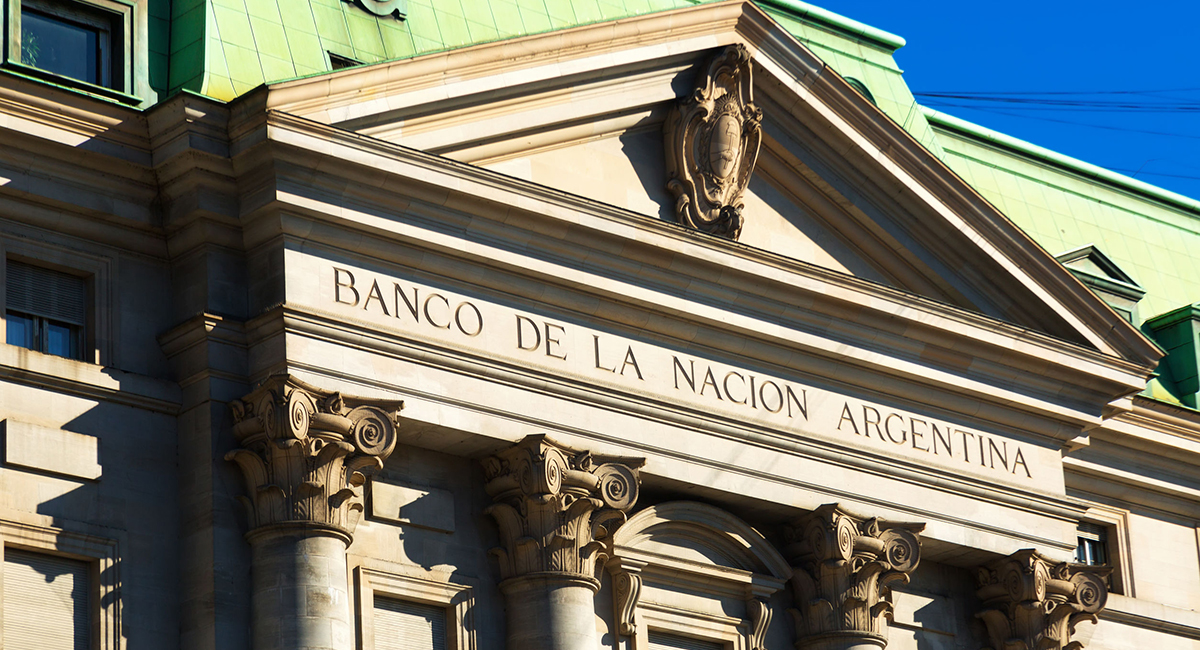It is interesting to think about what future generations will look back on and think, “How barbaric and backward. Did those people really believe _______?” From our current vantage point, for example, we look back on religion that way. For thousands of years, church and state were symbiotically linked, but many now see the separation of church and state as being a necessary condition for stable and liberal government.
What’s next? Argentina has a new “libertarian” president, Javier Milei. A big part of Milei’s platform was “dollarization,” or the abandoning of the valueless peso in favor of having accounts and assets recoded as being valued in United States dollars (USD).
It now appears, however, that when Milei takes office on December 10 he will not pursue full dollarization, certainly not immediately and perhaps not at all. Argentina is in many ways an advanced nation with a moronic government, saddled with the ditzy wishful thinking of Peronism. Argentina has a tax collection/compliance rate of less than 40 percent, more characteristic of a third world nation. As Leonidas Zalmanovitz pointed out last week, the real problem is a consensus on reducing inflation, not fiddling with rules.
Still, rules and institutions matter. Combining the “generosity” of Peronism, albeit generosity with the money of others, and the inability to collect taxes, has meant that the government has systematically gutted the value of the already threadbare peso. That issue, more than any other, is the reason that an outsider such as Milei was able to win by nearly 20 percent of the vote, a landslide rejection of orthodoxy. It is worth taking a step back and considering the sources of these “Argentina Agonistes,” and thinking about Milei’s core promise: the separation of money and state. I wonder if future generations will look back and wonder, “what took them so long?”
Basics of Public Finance
As a private citizen, if I want to spend more than my income, I have two choices:
- I can find more income, by working more hours or finding a higher-paying job; or
- I can borrow money, assuming I can find someone willing to loan me the cash at an interest rate I am willing to pay.
If I fail to repay the loan, including the contracted interest, then I will likely forego future opportunities to use the “borrow” option, because I will have revealed the fact that I cannot be trusted to repay the loan.
Governments that want to spend more than their revenue have something analogous to the first two choices:
- they can raise taxes, or
- they can sell bonds, or promises to repay a loan in the future
but they can also simply:
- print piles of the national currency, and then spend that.
As many heterodox theorists have pointed out, #3 is not actually all that different from #2. Fiat currencies are just a zero-coupon bond, which promise that the state will pay you one unit of that currency if you want to liquidate it. Unsurprisingly, just as with standard bonds, you can take a capital loss if you hold currency-bonds during a period of inflation.
And there is another relationship: Just as the failure of a private citizen to pay back a debt results in an inability to borrow, the failure of a state to maintain the value of currency results in an unwillingness to accept that currency as payment face value. If you want to pay debts using that currency, creditors will require a discount, meaning that more of the currency will be required to offset the inflation.
The “solution” is for the state to bind its hands somehow, to promise credibly that it will never use option #3 to finance spending in excess of revenue. That is the explicit rationale for creating an “independent” central bank, a clerisy of monetary shamans whose ritualized sacrament is maintaining the value of the currency. The problem is that political officials are sorely tempted to press the shamans for inflation to escape the debt burden that results from using state spending to buy votes in every election, or to bail out the banks that have taken on excessive portfolio risk as a way of raising their stock price.
There are many critiques of capitalism that object to such short-term profit maximization of corporate CEOs paid in stock options. But politicians may be worse: The political time horizon never extends beyond the next “most important election of our lives.” For politicians in the US, the longest they ever look ahead is 729 days, and that’s only on the Wednesday after an election.
Argentina has used deficit financing strategy #3—print piles of money—in a way that is not innovative, but which is quite effective. In the short run, the creation of money allows the government to “sell” peso-bonds at face value, recognizing that the promise to accept the pesos later will be made much cheaper by the sharp decline in the capital value of those pesos because of inflation.
Inflation has been the very lifeblood of Peronism. From 1980 to 2022, the average inflation rate exceeded 200 percent. It’s not hard to see how this works as a debt repayment strategy: If I borrow $1000 from you, and then pay you back $1000 in a year, 200 percent inflation means that I am repaying an equivalent value of only $250, having stolen $750. Argentina can often bilk international agencies of such loans, but by and large politicians have chosen instead to cut out the middleman and simply steal the value of their own currency from their own citizens. Let’s follow the money.
Why MONEY?
We all learned that monetary policy—management of the currency—is separate from fiscal policy—the policies of taxing and spending.
In fact, the argument for an activist central bank assumes that there are two distinct entities, something like a “Treasury Department” which manages markets in government debt, and something like a “Federal Reserve Open Market Committee” which manages the money supply. Obviously, the two activities can be connected,
But that division of jurisdictions can be collapsed. The US tried to play it straight (sort of), by having the Treasury Department “sell” new debt to finance the deficit, but with the understanding that much of the new debt would be purchased directly by the Fed, using its bottomless checking account. This was, and is, “new money,” meaning that the government was buying its own debt with printed money.
As a result, the “balance sheet” of the Fed, the list of assets it has “purchased” with fiat money, went from about $1 trillion in 2007 to nearly $9 trillion in 2022. Far and away most of those assets are I.O.U.s, promises to borrow even more money in the future to pay off the T-bills that the Fed bought to finance current deficits.
Argentina didn’t have the patience for that kind of financial kabuki dance. They cut out the middleman and just issued new “debt” directly in the form of that specialized bond called pesos. The separation between fiscal and monetary policy evaporated. If someone asked the endless series of Peronist regimes, “How many pesos do you have?” the answer was always just, “How many do you need?” As a result, the Argentine peso has lost 93 percent of its value in just the past 4 years. (Please read that sentence again, I can wait. Seriously: 93 percent).
In a terrific Econtalk a year ago, Devon Zuegel described the problems of managing even basic transactions in a hyperinflating environment. Anyone who could manage to carry out transactions using dollars always did so; holding pesos was little different from simply setting your wealth on fire. But actually “dollarizing,” as Ecuador, El Salvador, and Panama have done, requires a substantial cash reserve in dollars to manage liquidity. Argentina, of course, does not have that, at least not in government hands. So, the campaign promise of Javier Milei to dollarize is not feasible.
The interesting thing is that Milei is not actually a fan of dollars, precisely because the US currency is also managed by the politicized discretion of a central bank. His goal seems to be a change in the very economic constitution of Argentina, forcing a permanent separation of money and state. The advantage of dollars, in the near term at least, is that there is little that Argentina can do to affect the value of dollars, or to create new dollars in a way that will allow it to “repay” debts by depreciating the value of those debts. Thus, dollarization is not a full separation of money and state, but it is a significant step in that direction.
The paradox, and the central hope of the Milei economic program, is that removing the ability to cheat on debts will sharply reduce the cost of borrowing. Argentina has daunting problems, but it is also possessed of many highly educated and motivated people, and an impressive array of natural resources. The level of wrenching social change that will be required means that success is years away, if it happens at all. But achieving a separation of money and state is an important first step.











